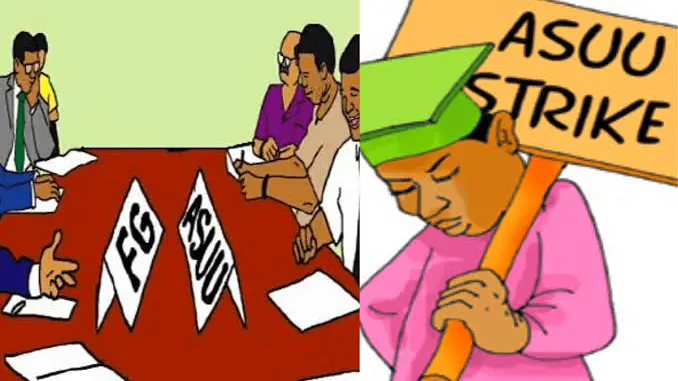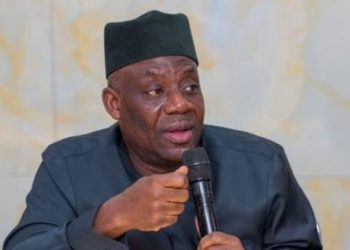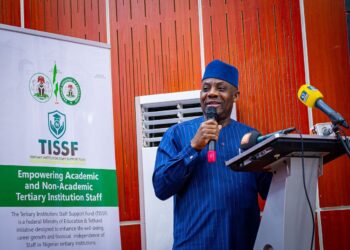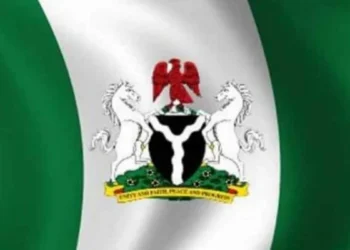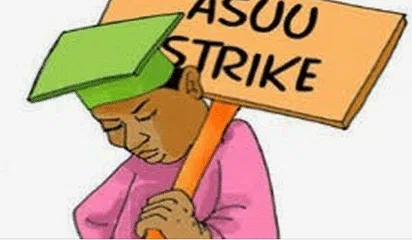The Academic Staff Union of Universities has declared a two-week total and comprehensive warning strike across all public universities in Nigeria, accusing the Federal Government of failing to honor its commitments.
The National President of the union, Prof. Chris Piwuna, announced the decision at a press briefing in Abuja on Sunday at the University of Abuja.
Piwuna stated that all branches of ASUU have been directed to withdraw their services with effect from midnight on Monday, October 13, 2025.
“Compatriots of the press, it goes without saying that there is nothing sufficient on ground to stop the implementation of the ASUU-NEC’s resolution to embark on a two-week warning strike at the expiry of the 14-day notice given on the 28th September 2025,” Piwuna said.
“Consequently, all branches of ASUU are hereby directed to withdraw their services with effect from midnight on Monday, the 13th October, 2025. The warning strike shall be total and comprehensive as agreed at the last NEC meeting.”
The strike announcement follows the expiration of a 14-day ultimatum issued by the union on September 28, 2025, demanding that the government address lingering grievances.
The declaration comes despite recent appeals by the Minister of Education, Tunji Alausa, for ASUU to suspend the planned action, with assurances that President Bola Tinubu has the political will to resolve outstanding issues.
The minister had disclosed that the Yayale Ahmed-led Federal Government Tertiary Institutions Expanded Negotiating Committee was scheduled to meet with ASUU leadership to present the government’s offer.
However, ASUU’s leadership appears unsatisfied with the pace of government action, insisting that concrete implementation of agreements, rather than promises, is what matters.
The warning strike is expected to disrupt academic activities across public universities nationwide, affecting millions of students and raising concerns about the stability of the academic calendar.
ASUU has historically embarked on strikes over issues including funding for universities, welfare of lecturers, implementation of agreements, and concerns about the autonomy and quality of tertiary education in Nigeria.
Further details are expected as the situation develops.

